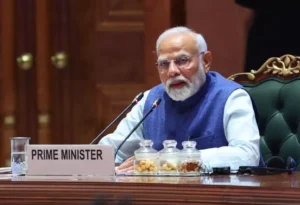Why Indian Marriages Are Failing and How It’s Shaping a Better Future

The Changing Dynamics of Indian Marriages: A Pathway to Modern Relationships
Introduction: – Marriage has been a pillar of Indian society, based on traditions, family expectations, and societal norms. But the institution of marriage is going through a dramatic change in India. Divorce is on the rise, arranged marriages are losing their hold, and many young Indians prefer living alone to marital compromises. Yet, though many perceive it as a crisis, this may be the best for the future. That’s Why Indian Marriages Are Falling.

The Increasing Divorce Rate in India
While India continues to have one of the lowest divorce rates in the world (approximately 1%), it has been gradually rising year by year. Increasing numbers of couples are now choosing to separate, a development unthinkable until now. Among urban cities, the percentage is much higher, showing the shift in the nature of marriage. The taboo subject of divorce is gradually taking a more common shape, and individuals are asking themselves if marriage is actually a prerequisite for a good life.
Why Are Indian Marriages Failing?
1. Evolving Gender Roles and Economic Independence
The most remarkable change is that of women’s empowerment. As education levels and job opportunities have grown, women no longer perceive marriage as an economic necessity. The conventional idea of a woman living off her husband is diminishing, with the rise of self-sufficiency and the courage to leave abusive or unfulfilling marriages behind.
2. Decreased Tolerance for Poisonous Relationships
Earlier generations went through marital troubles out of social compulsion and absence of choice. But the couples of todays are giving top priority to mental health, emotional intelligence, and respect for one another over simply staying alive in a marriage. If a relationship becomes poisonous, individuals are ready to leave and move on rather than enduring it in silence.
3. Increased Prevalence of Love Marriages Over Arranged Marriages
Though arranged marriages remain the norm in India, love marriages are on the rise. The catch? Most people are inexperienced at picking partners and dealing with relationships, so they end up with high expectations and eventual letdowns. Love marriages might be shattering barriers, but they also confront new issues in Indian Marriages.
4. Incompatibility and Hasty Decisions
Social and parental pressure tend to push one into marriage without a clear idea about what they are looking for in a partner. With shifting goals and lifestyles, compatibility is the biggest problem. Couples find out after marriage that their values, goals, and expectations do not align, which results in irreconcilable differences.
5. Sexual Awareness and Changing Attitudes Toward Fidelity
Most Indian traditional marriages had disregarded such aspects as sexual compatibility and personal desires. Exposure to contemporary outlooks on relationships has made people realize their own needs. Where these expectations fail to materialize, it is more difficult to maintain a marriage that is established solely on social conventions.
6. Legal and Social Acceptance of Divorce
In the past, divorce was a taboo, and people used to remain in dismal marriages for the fear of losing social respectability. But nowadays, with good legal assistance and growing social openness, people no longer hesitate to end unhappy unions. Courts increasingly grant divorces, and people’s attitudes about divorce as an indication of personal failure are also changing.
7. Emergence of Individualistic Lives Over Traditional Family Lives
The Indian culture is traditionally very family-oriented, but the current generation increasingly gives more importance to individual development and happiness over family duties. Contrary to earlier times when personal dreams were put on hold for the sake of family prestige, the youth today opt for self-realization. Contrary to earlier times when personal dreams were put on hold for the sake of family prestige, the youth today are opting for self-realization.
Why This Is a Positive Change for the Future
Most people see the rising collapse of marriages as a crisis, but it is really a symptom of progress.
1. Freedom of Choice and Personal Happiness
People are now free to choose their spouses on the basis of love, compatibility, and common objectives rather than societal coercion. If the marriage is not for their happiness, they can leave without any shame.
2. Breaking the Cycle of Unhappy Marriages
In the past, unhealthy marriages translated into unhealthy kids and poisonous home lives. As more people are choosing not to be in unsatisfying marriages, the next generation will be raised in healthier homes where bliss comes ahead of being together.
3. Women’s Empowerment and Equality
A greater rate of divorce also tends to represent women standing up for their rights and not wanting to accept any less. The change is one step towards greater gender equality as women have gained more control in their lives.
4. Increased Emphasis on Mental Health and Well-being
Contemporary couples place priority on emotional wellbeing rather than tradition. This modification leads to stronger, healthier relations and makes it more acceptable to go to the therapist, express oneself better, and develop superior emotional intelligence.
5. Better Relationship Standards
While individuals drift away from failed marriages, the center of focus moves towards selecting companions better, setting a higher priority on compatibility, and actively nurturing relationships instead of persisting with outdated traditions.
What the Future of Indian Marriages Holds
Indian marriage development is only in the formative stages.
- Delayed Marriages: More individuals will focus on career development and self-realization before settling into marriage.
- Trial and Open Relationships: Ideas such as live-in relationships and open marriages may become more popular.
- Equal Partnership Models: Conventional husband-wife roles will fade, giving rise to relationships founded on shared responsibilities.
- Increased Pre-marital Understanding: Couples will probably invest more in compatibility, counseling, and pre-marriage relationship work.
Conclusion
The increased failure of Why Indian Marriages Are Failing—And Why It’s the Best Thing for the Future is not a collapse of society—it’s a transition to improved, healthier, and happier relationships. We now have the freedom to make the choice for happiness over social expectation, and that is the right move. Rather than shudder at the change, we must welcome it as an indicator of advancement. Marriage is not a necessity; it must be an option.









